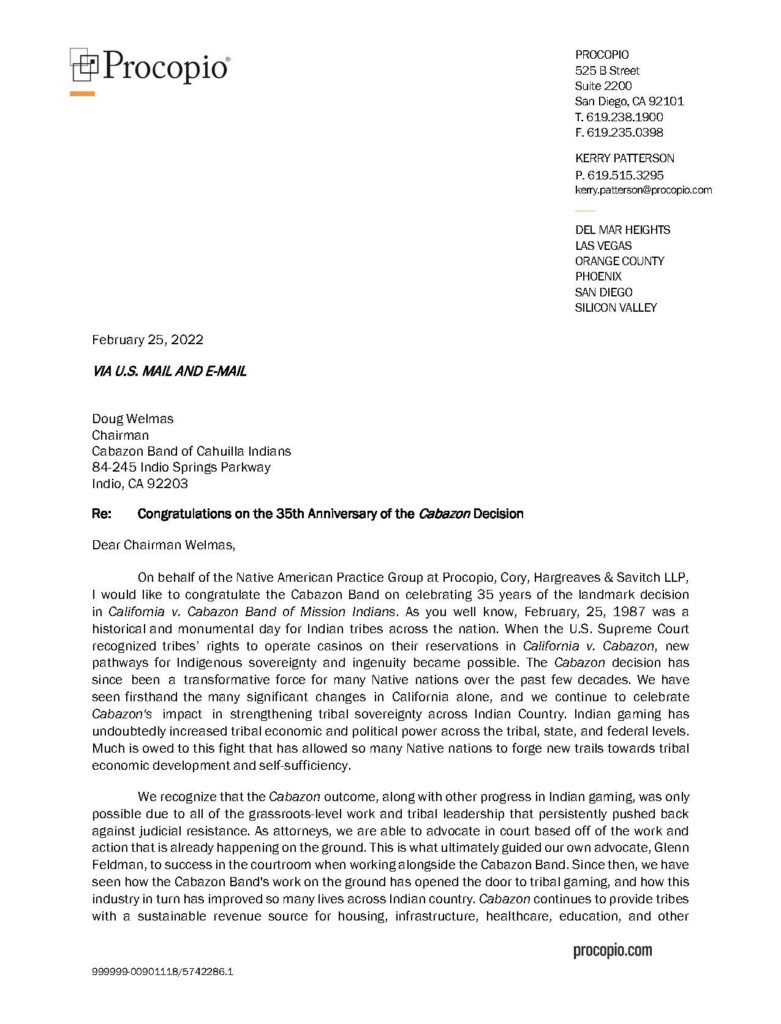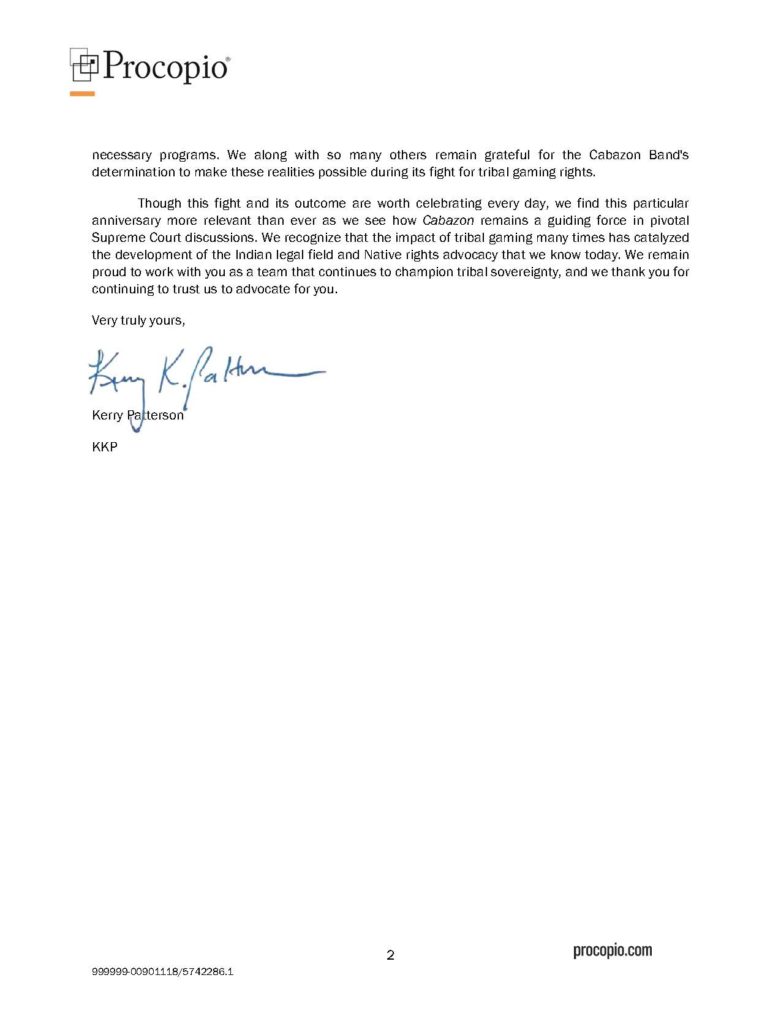
The Cabazon Band of Cahuilla Indians, a Procopio client, played a seminal role 35 years ago in cementing tribal sovereignty for all U.S. tribes as the lead plaintiff in a landmark U.S. Supreme Court decision. In California v. Cabazon, argued by Glenn Feldman—now a member of Procopio’s Native American Law practice—the High Court recognized tribes’ rights to operate casinos on their reservations. As Procopio Native American Law practice leader Kerry Patterson wrote in a recent letter to Cabazon Band Chairman Doug Welmas, the decision opened “new pathways for Indigenous sovereignty and ingenuity became possible.”
“The Cabazon decision has since been a transformative force for many Native nations over the past few decades,” Patterson continued. “We have seen firsthand the many significant changes in California alone, and we continue to celebrate Cabazon’s impact in strengthening tribal sovereignty across Indian Country. Indian gaming has undoubtedly increased tribal economic and political power across the tribal, state, and federal levels. Much is owed to this fight that has allowed so many Native nations to forge new trails towards tribal economic development and self-sufficiency.”
A 2021 article in the Arizona Law Review by William Wood details the progress of the case all the way to the U.S. Supreme Court, noting the long odds the Cabazon Band and Feldman faced. In his argument to the U.S. Supreme Court justices, Feldman stated: “Indian tribes are governments, and like all governments they have to have a source of revenue in order to function. Now, most tribes do not have a natural resource base. The Cabazon and Morongo Bands have reservations out in the middle of the desert, and until there is a commercial market for sand or sagebrush they do not have any sort of natural resources to generate tribal income.”
As Patterson noted in her letter to Chairman Welmas, thirty-five years after the February 25, 1987 decision, “Cabazon continues to provide tribes with a sustainable revenue source for housing, infrastructure, healthcare, education, and other necessary programs.”
Read Patterson’s full letter to the Cabazon Band chairman below.


Patrick Ross, Senior Manager of Marketing & Communications
EmailP: 619.906.5740
Suzie Jayyusi, Events Planner
EmailP: 619.525.3818